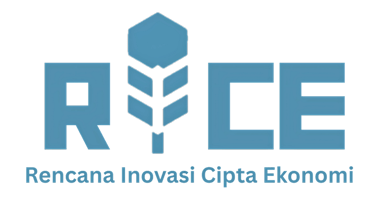Enhancing Supply Chain Efficiency: The Role of AI in Indonesia's F&B Sector
INDUSTRIES
5/16/20252 min baca


Introduction to Artificial Intelligence in Supply Chain Management
In today’s rapidly evolving marketplace, the integration of technology has become imperative, particularly within the supply chain sector. For food and beverage (F&B) companies in Indonesia, artificial intelligence (AI) is revolutionizing how businesses manage their supply chains. By optimizing processes, improving inventory management, and enhancing customer experiences, AI technology is paving the way for growth and sustainability in the F&B industry.
Benefits of AI in the Indonesian F&B Supply Chain
AI-driven solutions provide numerous advantages for F&B companies in Indonesia. Firstly, predictive analytics enable businesses to forecast demand more accurately. This capability allows companies to adjust production schedules and minimize waste, ensuring that perishable goods are efficiently managed. Moreover, AI algorithms analyze historical sales data and market trends to create precise demand forecasts tailored to regional preferences.
Another significant benefit is enhanced inventory management. AI technologies can automate inventory tracking and reorder processes, reducing human errors and operational costs. The result is a more streamlined supply chain that increases responsiveness to market changes. By leveraging AI for real-time inventory insights, Indonesian F&B companies can maintain optimal stock levels and reduce excess inventory.
Challenges and Considerations
While the advantages of implementing AI in supply chain management are substantial, there are also challenges that organizations must consider. One major hurdle is the initial investment required for AI technologies and training personnel. However, despite the costs, the long-term benefits often justify this investment. Additionally, there is a need for a solid data architecture to support AI algorithms, emphasizing the importance of data collection and management practices.
Moreover, integrating AI into existing systems can present compatibility challenges. Indonesian F&B companies must assess their current infrastructures to ensure successful implementation of AI solutions. Thus, strategic planning and collaboration with technology providers are essential to overcome these challenges effectively.
Conclusion
In summary, artificial intelligence represents a transformative opportunity for the supply chain management of F&B companies in Indonesia. By harnessing AI technologies, businesses can enhance their operational efficiency, improve customer satisfaction, and adapt to the dynamic demands of the marketplace. While challenges may arise during implementation, the potential for substantial gains makes AI an indispensable tool for the future of the F&B sector in Indonesia. Embracing this technology will not only foster growth but also ensure a competitive edge in an increasingly crowded marketplace.
RICE AI Consultant
Menjadi mitra paling tepercaya dalam transformasi digital dan inovasi AI, yang membantu organisasi untuk bertumbuh secara berkelanjutan dan menciptakan masa depan yang lebih baik.
Hubungi kami
Email: consultant@riceai.net
+62 822-2154-2090 (Marketing)
© 2025. All rights reserved.


+62 851-1748-1134 (Office)
IG: @riceai.consultant
